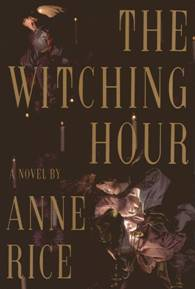Goth Chick News: Stalking Danny Torrance
 Last week I happened to catch an episode of Haunted Places on the Travel Channel in which The Stanley Hotel was being profiled.
Last week I happened to catch an episode of Haunted Places on the Travel Channel in which The Stanley Hotel was being profiled.
If you’re not familiar, this is the amazing location in Colorado which was Stephen King’s inspiration for The Shining. His stay there freaked him out so badly that to this day the author claims he’s convinced Mrs. Stanley is still hanging around playing the piano in the drawing room where she dropped dead in 1936.
The 1980 movie The Shining starring Shelley Duvall and Jack Nicholson is definitely in my Top Ten, and in a moment of weirdness (yes, just one moment) I suddenly became obsessed with what happened to the little kid with the famous finger friend “Tony” (remember, it was his finger that kept saying the unforgettable “REDRUM,” which is “murder” spelled backwards).
The documentary footage that came with the anniversary edition of the DVD shows director Stanley Kubrick as highly protective of little Danny Lloyd during filming. So much so that an interview with the six-year-old clearly indicates he was unaware he was shooting a horror movie at all, and instead thought it was some sort of action or mystery story.
 IMDB.com said very little about Danny, who virtually disappeared after his iconic role, acting only once more in 1982.
IMDB.com said very little about Danny, who virtually disappeared after his iconic role, acting only once more in 1982.
He would be 35 years old now, and according to the web site is currently a college professor who in 1999 was somewhere in the Midwest, in 2007 was in Elizabethtown, KY, and then moved on to a college in Missouri.
I hate to admit this, but I am an expert cyber-stalker.

 I don’t have a dislike for the vampire in general. I’ve repeatedly reminded myself about this even as I cringe at the saturation in our culture of mediocre work based on supernatural bloodsuckers. (Do I really have to name the book and movie series at the center of this creative blood drain? Of course I don’t.) Vampires are everywhere today, and this visibility has reduced their effectiveness for me, no matter what “new” spin the artists claim they’re putting on the legend. Exceptions are out there—for example the action-packed novels of certain contributor to Black Gate—but today I actively avoid horror and dark fantasy and especially parodies using vampires. I want more werewolves and phantasms and cosmic weirdness. Specifically werewolves. I love werewolves.
I don’t have a dislike for the vampire in general. I’ve repeatedly reminded myself about this even as I cringe at the saturation in our culture of mediocre work based on supernatural bloodsuckers. (Do I really have to name the book and movie series at the center of this creative blood drain? Of course I don’t.) Vampires are everywhere today, and this visibility has reduced their effectiveness for me, no matter what “new” spin the artists claim they’re putting on the legend. Exceptions are out there—for example the action-packed novels of certain contributor to Black Gate—but today I actively avoid horror and dark fantasy and especially parodies using vampires. I want more werewolves and phantasms and cosmic weirdness. Specifically werewolves. I love werewolves. We are proud to present a complete work of fiction from Black Gate 14: Alex Kreis’s “The Renunciation of the Crimes of Gharad the Undying.”
We are proud to present a complete work of fiction from Black Gate 14: Alex Kreis’s “The Renunciation of the Crimes of Gharad the Undying.” Naia was pinned under the rubble when the quake hit, trapped with the cruel sorcer, Cer Vassir. And then her nightmare truly began.
Naia was pinned under the rubble when the quake hit, trapped with the cruel sorcer, Cer Vassir. And then her nightmare truly began. If the constant litany of human suffering and human stupidity that is the 24 hour news cycle has got you down (gee, why would it?) then have a look at
If the constant litany of human suffering and human stupidity that is the 24 hour news cycle has got you down (gee, why would it?) then have a look at  Though I am an unapologetic fan of the Harry Potter books and movies, not to mention the upcoming
Though I am an unapologetic fan of the Harry Potter books and movies, not to mention the upcoming  The story attracted the attention of Warner Brothers, who optioned the rights, but alas, the movie version descended into development hell where it continues to languish. But from that point on, tampering with a little practical magic became a bit of a hobby for me.
The story attracted the attention of Warner Brothers, who optioned the rights, but alas, the movie version descended into development hell where it continues to languish. But from that point on, tampering with a little practical magic became a bit of a hobby for me.
 The Wolfman (2010)
The Wolfman (2010)